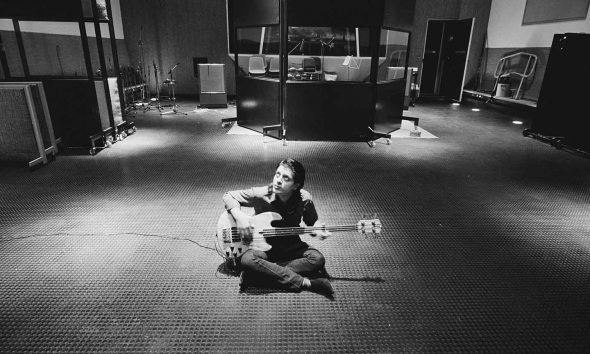Pearl Jam’s ‘Lightning Bolt’ Celebrates Tenth Anniversary With New ATMOS Edition
Widely acclaimed, the record was Pearl Jam’s fifth studio album to debut at No.1 on the Billboard 200 chart.

Pearl Jam is celebrating the tenth anniversary of its tenth album, Lightning Bolt, with a new surround-sound Dolby ATMOS edition of the record now available.
Shop the best of Pearl Jam’s discography on vinyl and more.
Lightning Bolt was originally released on October 15, 2013 and produced by long-time collaborator Brendan O’Brien. The record was Pearl Jam’s fifth studio album to debut at No.1 on the Billboard 200 chart in the U.S. along with topping music charts around the world.
Overall, Lightning Bolt offers a harder rock sound with longer songs in contrast to its predecessor Backspacer (2009), while the lyrics convey singer Eddie Vedder’s feelings on aging and mortality.
The distinctive artwork for Lightning Bolt was created by Don Pendleton, who is best known as a skateboard graphic artist. Pearl Jam bassist Jeff Ament had previously bought some of Pendleton’s paintings and asked the artist to do a logo for their upcoming album, which would later develop into all the illustrations. The bassist then kept in contact with Pendleton to guide his work, sending him the song lyrics, some sketches he had done and an advance copy of the album.
Lightning Bolt was well-received by critics, many of whom considered the album an effective return to the band’s trademark sound.
One of numerous positive notices greeting the album’s initial review, The Guardian’s review said “Lightning Bolt finds the Seattle quintet in a more bullish and spiky mood than usual, as exemplified by the furious, spittle-spraying punk rush of “Mind Your Manners.” On the similarly urgent “My Father’s Son,” they pull off the neat trick of sounding like Fugazi and UFO at the same time, as Eddie Vedder delivers one of his most intense performances to date…a sturdy return to great form.”
The Boston Globe, meanwhile, considered the album displayed that Pearl Jam “has plenty of spark left”, comparing it to both the “dense eclecticism” of the band’s own Vitalogy (1994), and “The Who’s solidity of purpose.”












